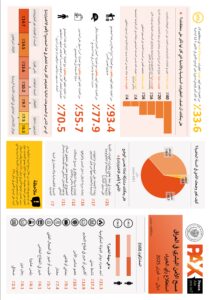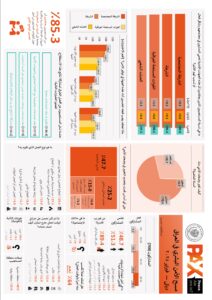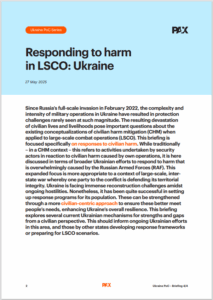Midterm evaluation – Human Security Survey
The Human Security Survey projects implemented in Iraq and South Sudan was halfway its current funding cycle in 2018, which provided a good opportunity for an external midterm evaluation. The primary focus of the evaluation was assessing the effectiveness of the project’s approach and relevance of the theory of change in the two country contexts. The evaluation findings will be utilized by project staff and partners to inform decision-making and project adaptation in the remaining period of implementation.
The evaluation was conducted by Proximity International, a professional evaluation and research firm based in the Middle East and with expertise working in conflict contexts. The process occurred between September and December 2018, and involved desk review of project documents, key informant interviews with key PAX and partner staff, interviews and focus group discussions with project participants, and direct observations during field visits to both countries. The evaluation team presented its findings in a detailed written report and then facilitated a participatory workshop with PAX staff to develop practical, meaningful recommendations. The Executive Summary provides an overview of the most significant findings and recommendations.
Through the evaluation PAX and its partners were able to identify many positive outcomes of the project and celebrate some key successes achieved to date. For example, local leaders in two bordering regions where we conduct the HSS in South Sudan, Payinjar and Yirol, expressed great pride in the fact that a peace conference between the communities helped to improve relations and decrease rates of cattle raiding. The HSS community security dialogue, organized and facilitated by our local partners, proved an important stimulant towards holding this threshold conference. The evaluation also provided an opportunity to discuss operational challenges and limitations that require new and creative solutions. For instance, the partners in Iraq requested that we provide further training about the research methodology and analysis processes so that they can better explain to local audiences what it means that the survey findings are representative and statistically significant, as they often face push-back when presenting less positive findings.
PAX and its partners look forward to achieving further results and learning from our experiences as we continue implementing the HSS in Iraq and South Sudan. Follow our updates here and check back often for new research products.
About this news
Date of publication:
Feb 14, 2019
Author:
Carrie Huisman


